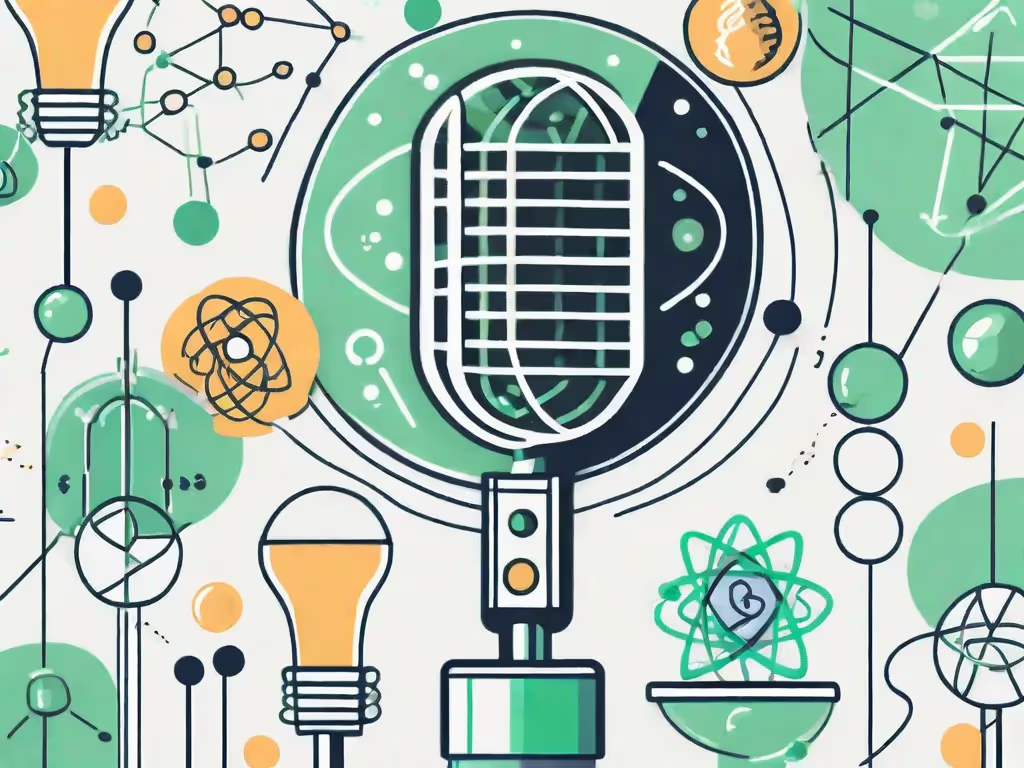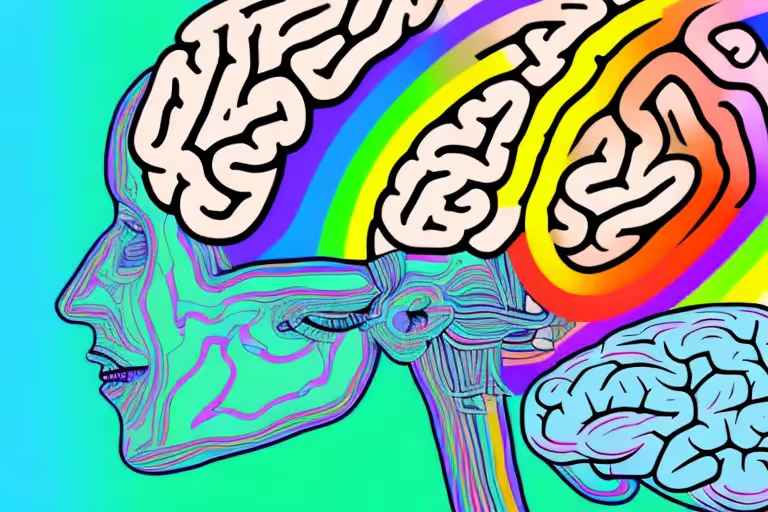Have you ever had a moment when you needed a little boost of confidence? Maybe you were about to give a presentation, or perhaps you were facing a challenging situation. In times like these, many of us turn to the power of self-pep talks.
Understanding the Psychology of Self-Pep Talks
Self-pep talks have long been hailed as a way to boost confidence and motivation. But why do they work? Recent data shows that self-pep talks tap into the psychology of positive affirmations. When we engage in positive self-talk, we are essentially reinforcing positive beliefs about ourselves. This may be because our brains tend to focus more on negative thoughts. By consciously redirecting our thoughts towards more positive and empowering statements, we can start to rewire our mindset and boost our confidence.
But what exactly happens in our brains when we engage in self-pep talks? Research suggests that when we engage in positive self-talk, our brain releases neurotransmitters like dopamine and serotonin, which are associated with feelings of happiness and well-being. These neurotransmitters not only make us feel good in the moment but also help to create positive neural pathways in our brains, making it easier for us to access positive thoughts and beliefs about ourselves in the future.
On the other hand, self-pep talks are also grounded in the principles of cognitive behavioral theory. According to this theory, our thoughts, feelings, and behaviors are interconnected. By changing our thoughts, we can influence our emotions and actions. Self-pep talks allow us to challenge negative or self-doubtful thoughts and replace them with more positive and empowering ones.
Moreover, self-pep talks can be seen as a form of self-compassion. When we engage in self-pep talks, we are essentially offering ourselves support and encouragement, just like we would to a friend in need. This self-compassion can help to counteract feelings of self-criticism or self-judgment, which can often hinder our confidence and motivation.
Interestingly, the effectiveness of self-pep talks can also be influenced by the language we use. Research has shown that using second-person pronouns, such as "you" or "we," instead of first-person pronouns, like "I," can enhance the impact of self-pep talks. This is because using second-person pronouns creates a sense of distance from the negative thoughts or self-doubt, allowing us to view ourselves more objectively and offer ourselves more compassionate and empowering advice.
In conclusion, self-pep talks are not just empty words or meaningless phrases. They tap into the psychology of positive affirmations, cognitive behavioral theory, self-compassion, and the power of language and visualization. By consciously engaging in self-pep talks, we can rewire our mindset, boost our confidence, and motivate ourselves to reach our full potential.
The Neurological Impact of Self-Pep Talks
When it comes to self-pep talks, the impact goes beyond just the psychology of it. In fact, there is a fascinating neurological aspect to consider as well. Our brains respond in intriguing ways when we engage in positive self-talk, as shown by various neuroimaging studies.
One of the key findings from these studies is that positive self-talk can activate specific regions of the brain associated with reward and motivation. It's like giving ourselves a mental high-five! When we engage in self-pep talks, our brain rewards us by releasing a surge of feel-good neurotransmitters, such as dopamine. This chemical response further reinforces our confidence and motivation, creating a positive feedback loop.
But that's not all. Self-pep talks can also have a long-lasting impact on our neural pathways. The more we engage in positive self-talk, the stronger the connections between neurons become. This phenomenon, known as neuroplasticity, means that our brain becomes wired to think more positively and confidently over time.
Imagine a scenario where you face a challenging task. Instead of succumbing to self-doubt or negative thoughts, engaging in a self-pep talk can activate those reward and motivation centers in your brain. This activation not only boosts your confidence but also helps you approach the task with a more positive mindset.
As you continue to practice self-pep talks, the neural pathways associated with positive thinking become more robust. This means that even in the face of adversity or setbacks, your brain is primed to respond with resilience and optimism. It's like having an internal cheerleader who always believes in your abilities.
So, the next time you find yourself in need of a confidence boost or motivation, remember the fascinating neurological impact of self-pep talks. By engaging in positive self-talk, you not only tap into the power of your mind but also reshape your brain to think more positively and confidently. It's a remarkable journey of self-improvement that starts with a few encouraging words to yourself.
Techniques for Effective Self-Pep Talks
Now that we understand the science behind self-pep talks, let's explore some techniques for making them more effective. Crafting your personal pep talk is an art, and it begins with identifying the specific areas where you need a confidence boost. Is it public speaking? Taking risks? Starting a new venture?
One technique is to create a list of affirmations tailored to these specific areas. For example, if public speaking is your challenge, your affirmation might be: "I am a confident and engaging speaker, and I captivate my audience with ease." Repeat these affirmations out loud or in your mind, and visualize yourself confidently achieving your goals.
In addition to creating affirmations, timing and frequency are important factors to consider. Some individuals find it helpful to have a pep talk right before a challenging task, while others benefit from regular self-pep talks every morning or night. Experiment with different timings to find what works best for you.
The Connection Between Self-Pep Talks and Confidence
Self-pep talks have a profound impact on our confidence levels. By consciously choosing to believe in our abilities and reinforcing positive beliefs, we can boost our self-esteem. One study even found that individuals who engaged in positive self-talk experienced increased self-esteem levels over time. So, the more we rely on self-pep talks, the greater our confidence becomes.
Moreover, self-pep talks have a remarkable ability to help us overcome self-doubt. Often, our inner critic can hold us back from pursuing our goals. By silencing that critic through positive self-talk, we can empower ourselves to take action and step out of our comfort zones.
Potential Pitfalls of Self-Pep Talks
While self-pep talks are undeniably powerful, it's important to be mindful of their potential pitfalls. One potential trap is falling into overconfidence and complacency. It's essential to strike a balance between boosting our confidence and being grounded in reality. Recognizing our strengths is important, but it's equally important to acknowledge our areas for growth and improvement.
Additionally, self-pep talks should be viewed as a tool rather than the sole solution. It's important to back up our positive self-talk with action and effort. Self-pep talks can provide the motivation and confidence, but ultimately, we need to put in the work to achieve our goals.
The Aura Health App Advantage
Despite that, incorporating self-pep talks into our lives can be a game-changer. And that's where the Aura Health app comes in. With its wide range of guided meditations and affirmations, the app provides the perfect platform for practicing and refining your self-pep talk skills.
Whether it's boosting your confidence before a big presentation or overcoming self-doubt, Aura Health offers a variety of resources to support you on your self-improvement journey. So, go ahead and unlock the power of self-pep talks, and discover a newfound level of confidence within yourself.
Aura is Your All In One App for Meditation, Mindfulness Wellbeing
Find peace every day with one app for your whole well-being. There is no one-size-fits-all solution to mental well-being. Aura is the first all-in-one wellness app that learns how to best help you. Discover an endless library of expert-created tracks for your well-being, all taught by the world’s best coaches, therapists, and storytellers. With Aura's personalized recommendations, you can find peace every morning, day and night.



.webp)






.avif)

%20(1).avif)


.avif)
.avif)
.webp)


.avif)


















































































































.avif)

















.svg)









